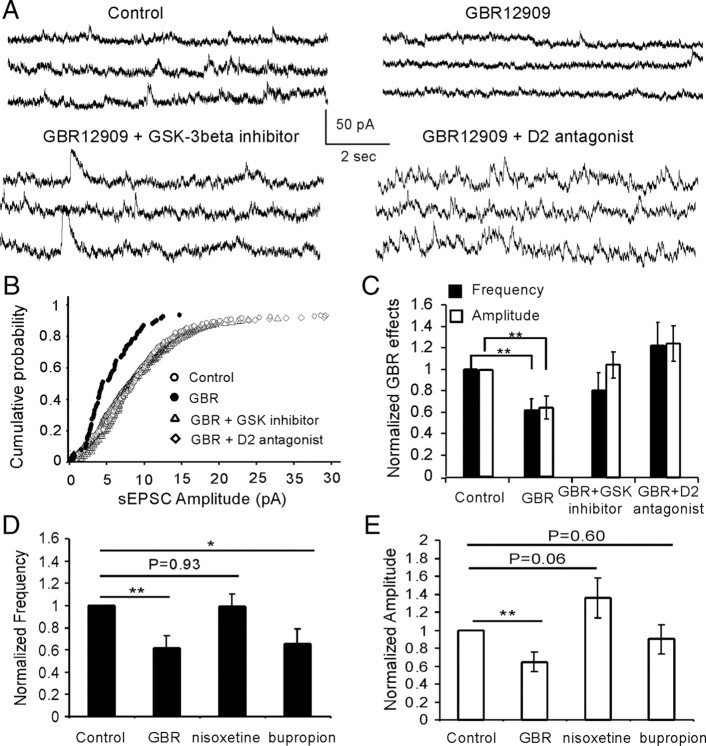Figure 5.
Hyperdopamine induced by systemic administration of GBR12909 significantly decreases the spontaneous NMDA-EPSCs, and the effects were completely blocked by systemic coadministration of GBR12909 and either D2 antagonist or GSK-3β inhibitor TDZD. A, Representative traces of the spontaneous NMDA-EPSCs. B, Cumulative probability showing the obvious shift of the spontaneous NMDA-EPSC in GBR12909 administration. C, The decreases of both spontaneous EPSC frequency (p < 0.01) and amplitude (p < 0.01) induced by GBR12909 were completely reversed by coadministration of GBR12909 with either D2 antagonist or GSK-3β inhibitor TDZD in vivo. D, E, Effects of selective NET inhibitior nisoxetine (10 mg/kg, i.p.) and a nonselective DA and NE reuptake blocker bupropion (10 mg/kg, i.p.) on NMDA currents. Nisoxetine exhibited no effect on EPSC frequency but increased the amplitude of NMDA current, although not statistically significantly (n = 6; p = 0.93 for frequency and p = 0.06 for amplitude). In contrast, bupropion significantly decreased EPSC frequency (n = 6; p < 0.05), similar to GBR12909, but had no significant effects on the EPSC amplitude (n = 6; p = 0.60). Error bars indicate SEM.

